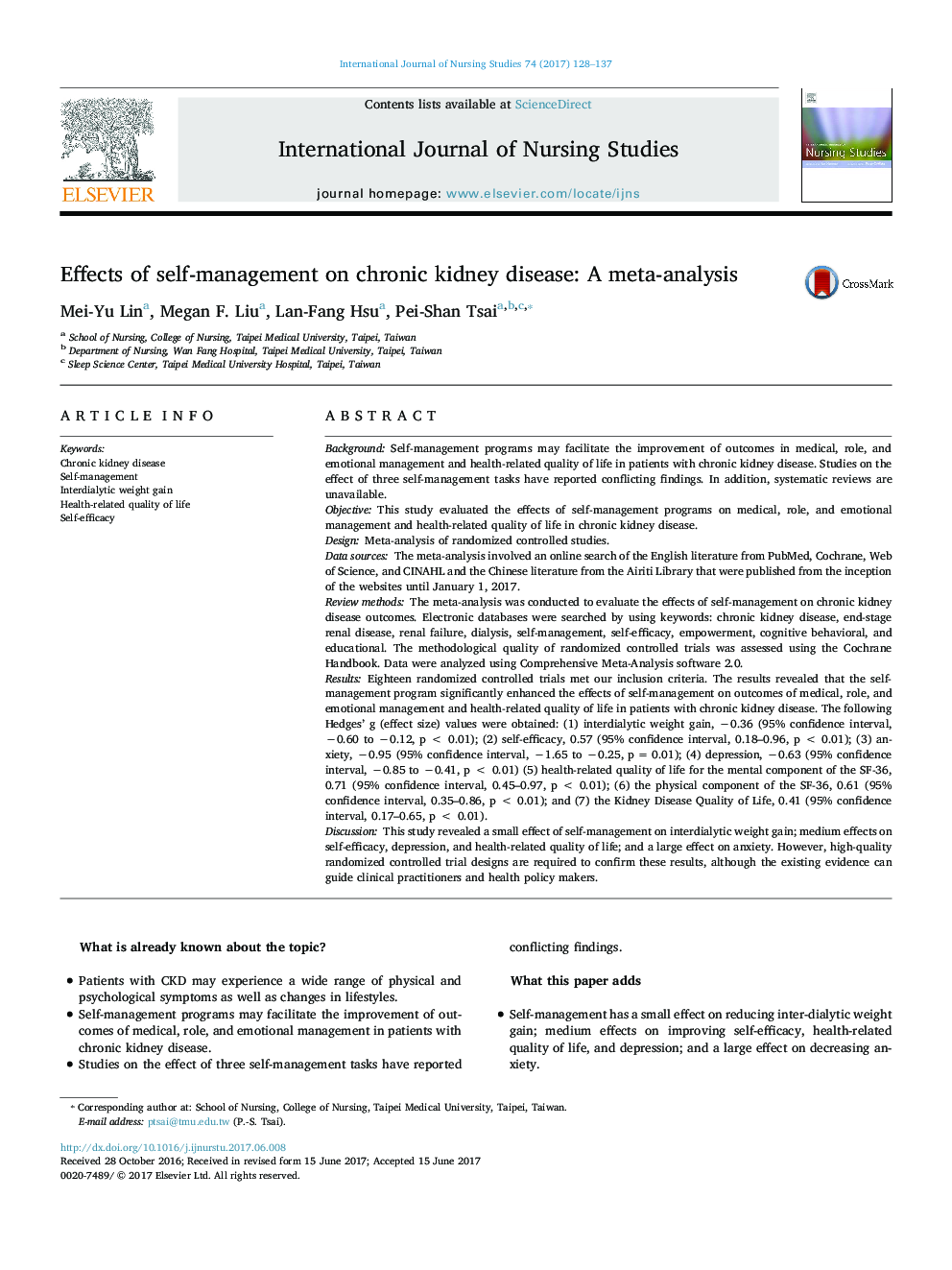| کد مقاله | کد نشریه | سال انتشار | مقاله انگلیسی | نسخه تمام متن |
|---|---|---|---|---|
| 5120982 | 1486495 | 2017 | 10 صفحه PDF | دانلود رایگان |
BackgroundSelf-management programs may facilitate the improvement of outcomes in medical, role, and emotional management and health-related quality of life in patients with chronic kidney disease. Studies on the effect of three self-management tasks have reported conflicting findings. In addition, systematic reviews are unavailable.ObjectiveThis study evaluated the effects of self-management programs on medical, role, and emotional management and health-related quality of life in chronic kidney disease.DesignMeta-analysis of randomized controlled studies.Data sourcesThe meta-analysis involved an online search of the English literature from PubMed, Cochrane, Web of Science, and CINAHL and the Chinese literature from the Airiti Library that were published from the inception of the websites until January 1, 2017.Review methodsThe meta-analysis was conducted to evaluate the effects of self-management on chronic kidney disease outcomes. Electronic databases were searched by using keywords: chronic kidney disease, end-stage renal disease, renal failure, dialysis, self-management, self-efficacy, empowerment, cognitive behavioral, and educational. The methodological quality of randomized controlled trials was assessed using the Cochrane Handbook. Data were analyzed using Comprehensive Meta-Analysis software 2.0.ResultsEighteen randomized controlled trials met our inclusion criteria. The results revealed that the self-management program significantly enhanced the effects of self-management on outcomes of medical, role, and emotional management and health-related quality of life in patients with chronic kidney disease. The following Hedges' g (effect size) values were obtained: (1) interdialytic weight gain, â0.36 (95% confidence interval, â0.60 to â0.12, p < 0.01); (2) self-efficacy, 0.57 (95% confidence interval, 0.18-0.96, p < 0.01); (3) anxiety, â0.95 (95% confidence interval, â1.65 to â0.25, p = 0.01); (4) depression, â0.63 (95% confidence interval, â0.85 to â0.41, p < 0.01) (5) health-related quality of life for the mental component of the SF-36, 0.71 (95% confidence interval, 0.45-0.97, p < 0.01); (6) the physical component of the SF-36, 0.61 (95% confidence interval, 0.35-0.86, p < 0.01); and (7) the Kidney Disease Quality of Life, 0.41 (95% confidence interval, 0.17-0.65, p < 0.01).DiscussionThis study revealed a small effect of self-management on interdialytic weight gain; medium effects on self-efficacy, depression, and health-related quality of life; and a large effect on anxiety. However, high-quality randomized controlled trial designs are required to confirm these results, although the existing evidence can guide clinical practitioners and health policy makers.
Journal: International Journal of Nursing Studies - Volume 74, September 2017, Pages 128-137
